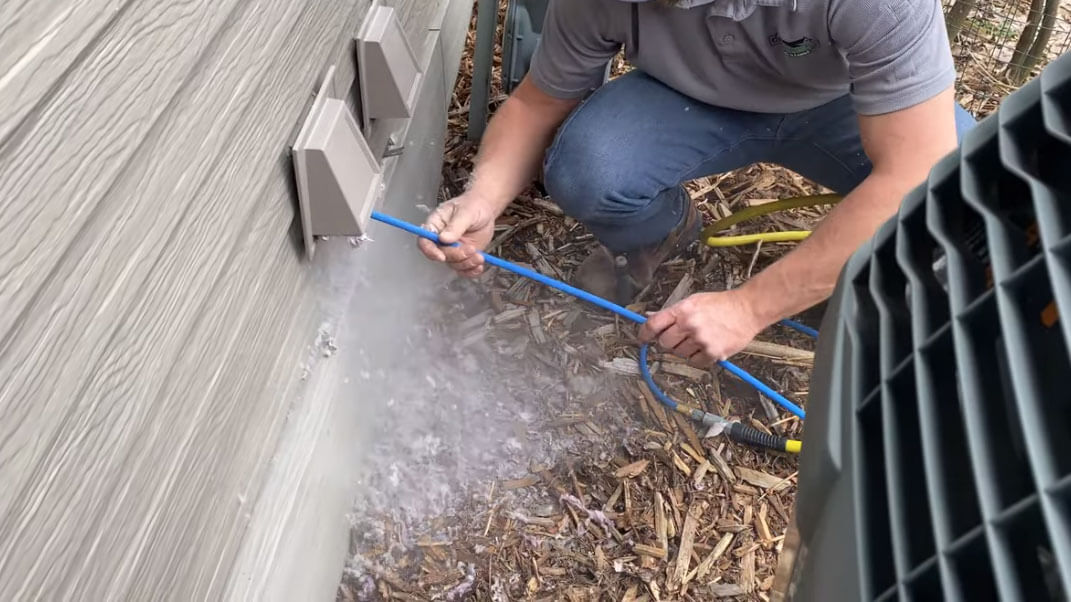When it comes to modern heating, ventilation, and air conditioning (HVAC) systems, a key component that often comes into play is the chiller system. But, what is a chiller system in a HVAC? It’s a question many homeowners and business owners have, and rightly so.
A chiller system is a vital part of many HVAC setups, providing the cooling needed to ensure comfortable indoor environments. At its core, a chiller system removes heat from a liquid via a vapor-compression or absorption refrigeration cycle. This cooled liquid can then be circulated through a heat exchanger to cool air or equipment, ultimately making life more comfortable and processes more efficient.

Understanding the Basics of a Chiller System
Types of Chiller Systems
Chiller systems come in various forms, each with unique attributes suited to specific tasks. The two primary types are:
- Air-cooled chillers
- Water-cooled chillers
How Does a Chiller System Work?
Chiller systems operate by transferring heat through a refrigeration cycle. Here’s a simplified version of the process:
- Refrigerant absorbs heat from the water or air being cooled.
- The refrigerant then transfers this heat to an outside environment, using either air or water.
- The refrigerant cycles back to absorb more heat.
Components of a Chiller System
Key Parts of a Chiller
The main components include:
- Compressor
- Evaporator
- Condenser
- Expansion valve
Applications of Chiller Systems
Residential Use
In residential settings, chiller systems can be used to cool homes and small buildings efficiently.
Commercial Use
Businesses use chiller systems for a variety of needs, from cooling large office buildings to maintaining optimal conditions in data centers.
Benefits of Using a Chiller System
Why Choose a Chiller System?
Chiller systems offer several advantages:
- Energy efficiency
- Cost-effectiveness
- Reliability
Maintaining Your Chiller System
Regular Maintenance
Regular maintenance is crucial for the longevity and efficiency of your chiller system. Routine checks ensure that all components are functioning correctly and that there are no underlying issues impacting performance.
Professional Services
It’s often beneficial to rely on professional HVAC services for chiller system maintenance. They have the expertise to identify and resolve issues promptly.
For more information on maintaining your HVAC system, you can check this useful guide.
Innovations in Chiller Technology
Chiller systems, like all technology, have evolved significantly over the years. Modern chiller systems are more energy-efficient and environmentally friendly than ever before.
Future Trends
Looking ahead, we can expect to see further advancements in chiller technology, making these systems even more efficient and cost-effective.
Conclusion
Understanding what is a chiller system in a HVAC is essential for anyone looking to optimize their heating and cooling needs. Whether for residential or commercial use, chiller systems offer tremendous benefits in terms of energy efficiency, cost-effectiveness, and reliability. Proper maintenance and staying updated with technological advancements will ensure you get the most out of your chiller system.
For additional insights into HVAC maintenance and issues, consider visiting this helpful page.
FAQs
What is the main function of a chiller system in a HVAC?
The main function of a chiller system is to remove heat from a liquid through a refrigeration cycle, then circulate this cooled liquid to cool air or equipment within a building.
Can a chiller system be used in residential settings?
Yes, chiller systems can be used in residential settings. They are highly efficient for cooling homes and small buildings.
What are the benefits of using a chiller system?
Chiller systems offer several benefits, including energy efficiency, cost-effectiveness, and reliability.